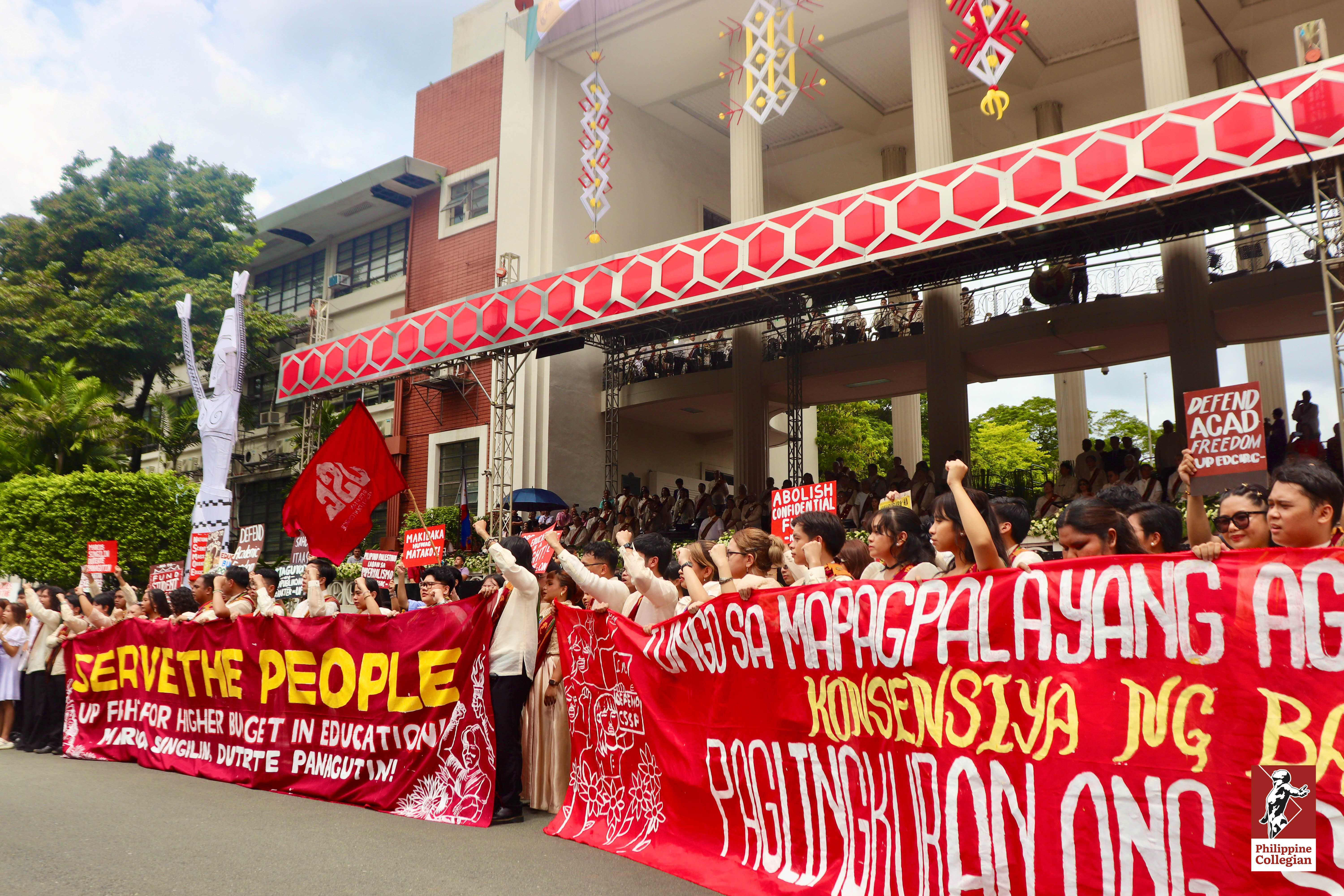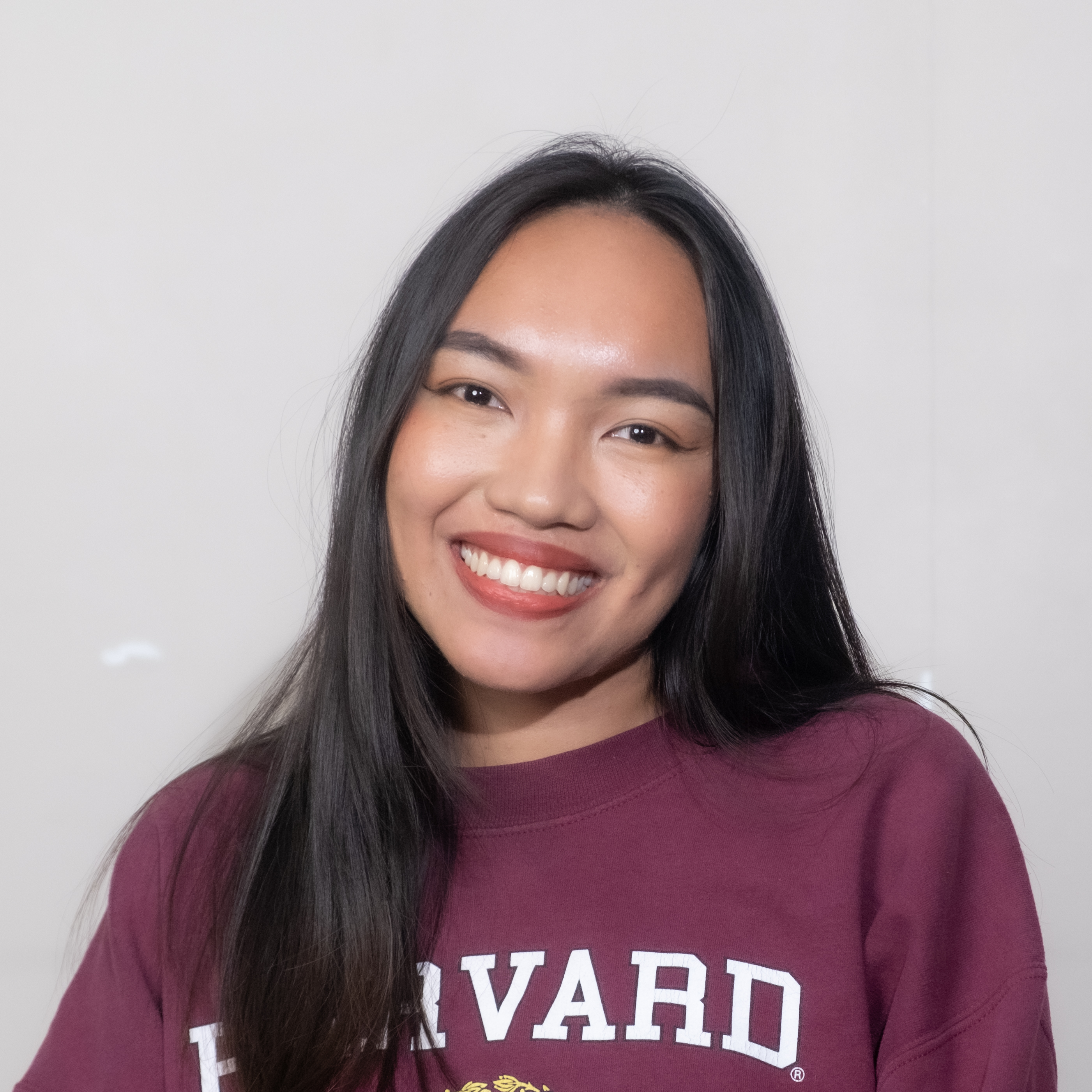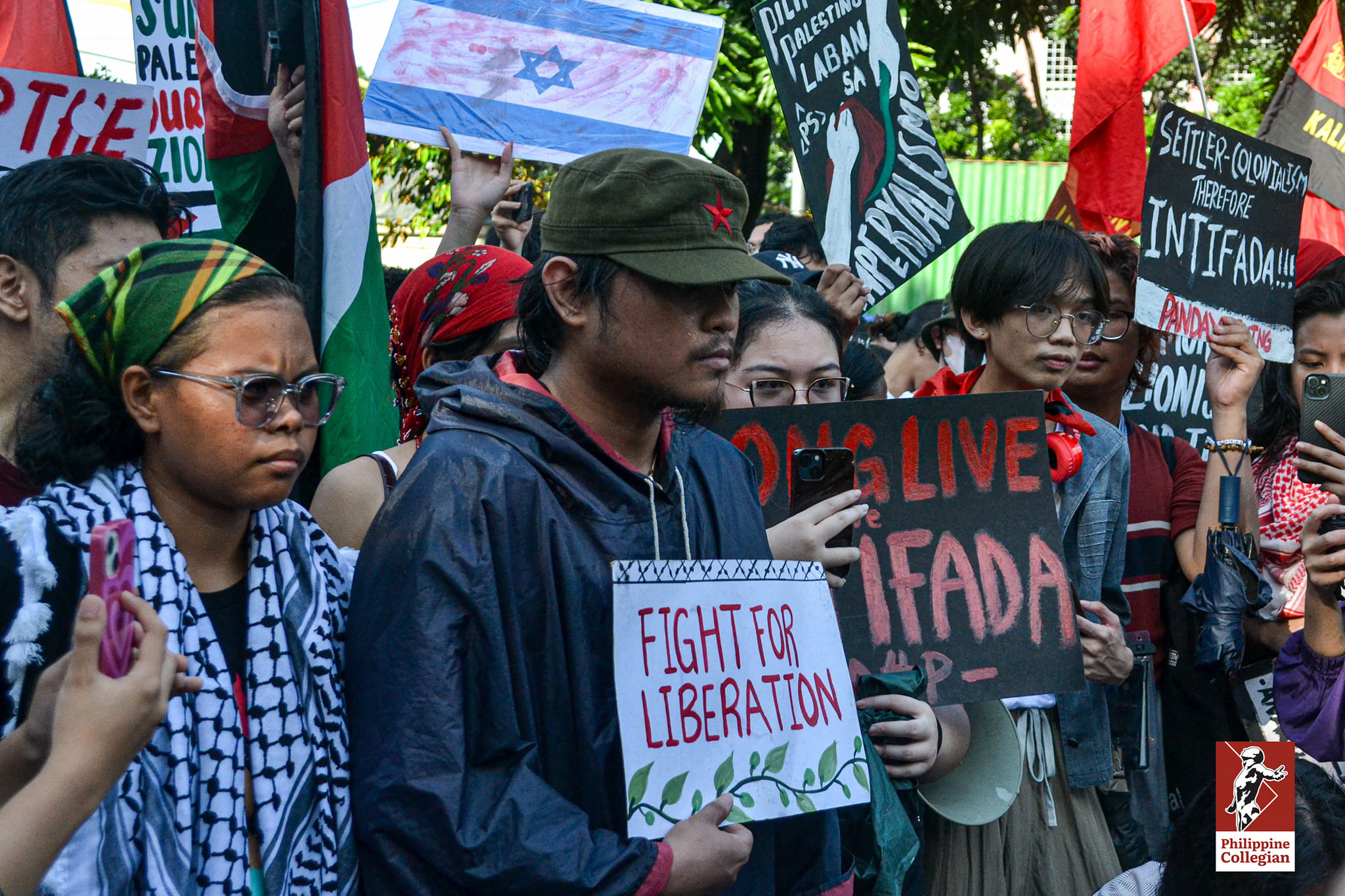As a child, I was always told I talked too much.
I was always the first to raise my hand in class, unabashed to speak my mind and ask questions. It got me in trouble more times than I can count.
Still, I never really stopped asking.
In UP, my questions only multiplied. I eventually learned that questions are only tolerated until they challenge the status quo. I studied public administration hoping to understand how institutions can better serve the people. But it was hard to reconcile that hope with institutionalized corruption, violence, and impunity. I wanted to quit my degree, I confessed in my first column for the Collegian in 2022.
But I came to know that more people had questions rooted in hopes for justice and better governance. I met principled civil servants collectively organizing through unions to assert their rights. I marched with tireless community organizers in the streets to advance marginalized causes. I worked alongside civil society organizations lobbying for policy reforms in the halls of power.
Fearing for my safety, my family discouraged my involvement when they learned of my convictions. But as much as I want to assert my freedom of association, I am not numb to the climate of fear that the state has cultivated through red-tagging, arbitrary arrests, and killings to deter dissent.
As convenient as it may be, I cannot blindly hold our university’s slogan of honor, excellence, and service aspirations, for I understand they come with many contradictions that are uncomfortable to admit as it is much harder to swallow. Under a system that rewards compliance, radical ideals are difficult to sustain.
Still, I hold on to my beliefs, not out of naivete but in defiance of the cynicism that tells us change is impossible. The greater danger is not dissent, but power unchecked and authority unchallenged.
I am slated to graduate on Sunday and formally enter law school the day after. I carry with me the stubborn hope of working in public interest law to serve the communities which have long been denied justice. But I realize the precarity of pursuing this path, and I refuse to romanticize the sacrifice it demands. I acknowledge that committing to advocacy work is not without its struggles.
Yet despite the weight of this reality, I cannot ignore the questions that have long grounded me: Whose interests am I protecting? Whose silence am I complicit in? Whose struggles am I willing to stand beside?
I move forward with my mind teeming with questions. Despite all uncertainty, I have found some clarity in my situation. As I graduate from UP, one thing is clear: To serve the people is not to pretend we are immune from the systems we critique, but to struggle within and against them. ●
First published in the July 5, 2025 print edition of the Collegian.




